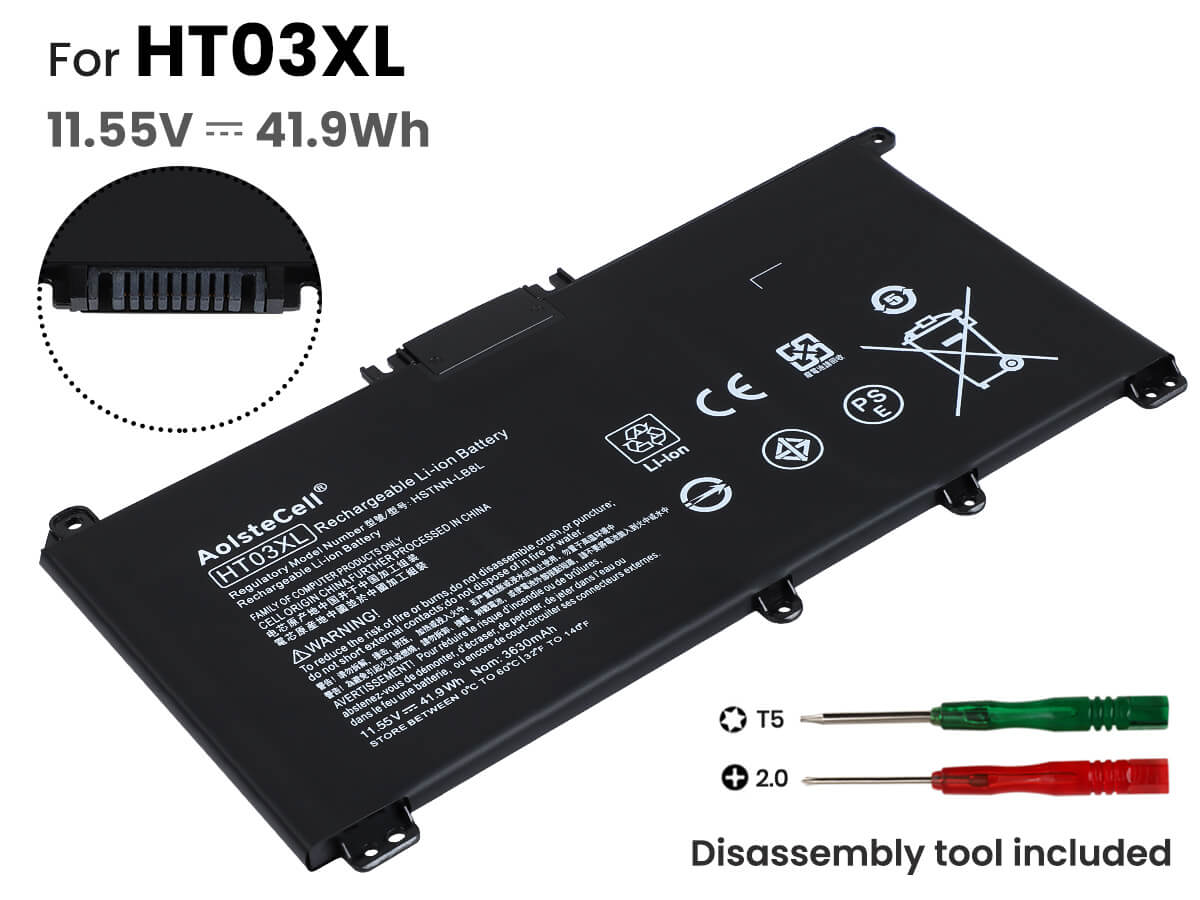Laptop batteries are an important part of the device. They not only provide power support, but also directly affect the performance and user experience of the device. When the original battery is aged or damaged, many users will consider purchasing a third-party battery replacement, but a common question is: Are third-party laptop batteries safe to use?
This article will focus on the advantages and disadvantages, safety, and purchase recommendations of third-party batteries to help everyone make a wise choice.
1. What Are Third-Party Laptop Batteries?
Third-party laptop batteries are batteries that are not produced by the original equipment manufacturer (OEM). These batteries are usually designed for specific models, are cheaper than original batteries, and have a wider range of choices. However, due to different manufacturers, the quality varies greatly, which directly affects safety and user experience.
2. Advantages and potential risks of third-party batteries

Advantage
○ Affordable price: Third-party batteries are usually 30%-50% cheaper than original batteries, suitable for users with limited budgets.
○ Multiple market choices: Users can choose products of different brands, capacities and prices according to their needs.
○ Large-capacity battery options: Some third-party manufacturers provide batteries with higher capacity, which can extend the battery life of laptops.
Potential risks
○ Compatibility issues: Some third-party batteries may not fully match the device, resulting in malfunction or failure to be recognized.
○ Uneven quality: Low-cost third-party batteries may use inferior materials, which may cause battery swelling, overheating, or even explosion.
○ Lack of protection design: Some batteries lack overcharge, over-discharge, and short-circuit protection functions, increasing safety risks.
○ Imperfect warranty and service: Third-party batteries usually provide weak after-sales service, and repair or replacement may be difficult.
3. Are third-party batteries safe?

Whether third-party batteries are safe depends mainly on product quality and usage habits. High-quality third-party batteries usually have performance close to that of original batteries and have passed strict safety certifications such as CE, UL, FCC, etc. However, inferior batteries may bring the following safety issues:
○ Overheating or fire: Inferior batteries have unstable internal structures and may overheat due to charging or use.
○ Device damage: Incompatible batteries may damage the motherboard or other hardware.
○ Leakage or expansion: Batteries with substandard materials and workmanship are prone to chemical leakage or expansion.
4. How to choose safe and reliable third-party batteries?

○ Choose a well-known brand
Choose a third-party battery brand with a good reputation, such as Aolstecell. All batteries of this brand have passed UN38.3 and RCM, CE, UL, ROHS, ISO9001/ISO9002 and other international certification tests. In order to minimize the risk of potential safety hazards and ensure a good user experience, the battery also adopts protection measures. For example, protection temperature, circuit, Rest, overvoltage, hardware, output current limit threshold, input and overcharge.
○ Check the certification mark
Make sure that the battery has passed relevant international safety certifications, such as CE (European Safety Certification), UL (US Safety Certification), etc. These certifications can ensure the safety and reliability of the battery.
○ Check user reviews
Before purchasing, browse other users' experience and reviews, especially pay attention to the compatibility and safety of the product.
○ Confirm compatibility
Carefully check whether the battery model, voltage and interface are fully matched with the notebook to avoid purchasing unsuitable products.
○ Avoid products with too low prices
Batteries that are priced far below the market average are usually of poor quality and should be chosen with caution.
Third-party laptop batteries are not completely unsafe, but their safety depends on the brand and quality. Choosing reliable third-party brand batteries, ensuring that the products are safety certified, and paying attention to usage habits can save costs while ensuring safety and performance.
If you have higher requirements for the performance and safety of your device, the original battery may be a safer choice; but if your budget is limited, high-quality third-party batteries can also meet your needs. No matter which battery you choose, please keep a safety awareness to protect your device and yourself.
What do you think of third-party batteries? Feel free to share your experience and suggestions in the comments section!
Warm Tips: AolsteCell promises that the adapters it provides meet OEM standards and have passed multiple international certifications. Please rest assured to purchase and use them!